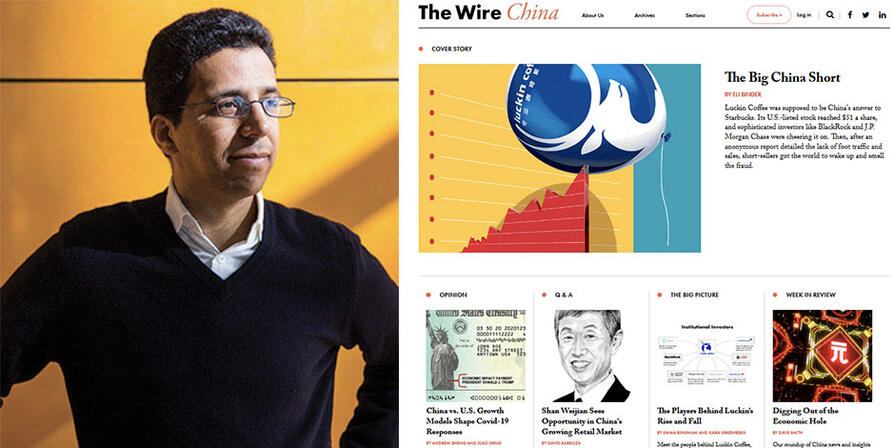Led by David Barboza, distinguished New York Times journalist, a group of veteran journalists have created The Wire China, an online publication featuring in-depth investigative reporting on Chinese business and economic trends. Contributing writers are stationed around the globe and many of them have years of experience covering China and its evolving relationship with the rest of the world. The publication also plans to sell access to data generated by its team of journalists, researchers and engineers. We’ll talk with David Barboza about the challenges of reporting on China and what makes The Wire China approach unique.
David Barboza started as an intern for the New York Times before being hired as a staff writer in 1997. He is best known for his work as Shanghai bureau chief from 2008 to 2015. In 2012, he wrote about the $2.7 billion fortune accumulated by the family of Wen Jiabao, China’s premier. This corruption exposé was denounced by China’s government which subsequently blocked the paper’s English and Chinese language websites. It earned Barboza the 2013 Pulitzer Prize for international reporting. That same year, he was also part of the team producing the “iEconomy” series, which received the Pulitzer Prize for explanatory journalism. Earlier, Barboza was among the Times’ reporters earning the Grantham Prize for environmental reporting (“Choking on Growth,” 2008) and was on another team documenting another group that was a finalist for the Pulitzer Prize (Enron scandal, 2002). Some of his other business reporting was recognized with awards from the Society of American Business Editors and Writers. In 2016, he was a Knight Visiting Fellow at the Nieman Foundation. Barboza told the story of his work on the Wen family finances in the “Follow the Money” of the USC U.S.-China Institute’s Assignment:China series.




